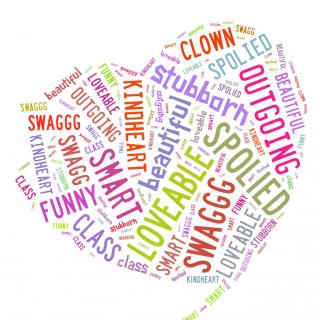
介绍:
20160704ou 一中两外锵锵三人行
今日话题 - 最新报道称,越能用准确的词汇形容感觉,感觉越强烈 真切
Lincoln: Now, how can language make you happier. Yoyo, take it away.
Yoyo: A recent report says that the limits of our language are said to define the boundaries of our world. That means we are restricted by the words we know, so whatever vocabulary we have managed to acquire in relation to happiness will influence the types of feelings we can enjoy.
Brian: There’s ideas in philosophy that language and reality are very much related, like let’s say you only a few thousand words. Daily life would be most the same as anyone else, but maybe the range of emotions you’d be able to express – at least express, but also feel or comprehend in a certain way, would probably be limited as well.
Yoyo: So that means when you’re talking about something, you can only describe it vaguely, and you might feel it vaguely as well.
Brian: Right.
Lincoln: I love these kind of things as well – it’s one of my favorite things to look, because if you don’t have an idea for a concept, it’s impossible to translate a word. One of the famous ones is toska, in Russian; have you heard of this?
Brian: I have not.
Lincoln: It’s supposed to be this kind of – it’s supposed to be like the sensation of great spiritual anguish, often without any pause. It’s also kind of like, like a morbid dull ache of the soul, and at the very lowest [BK: Wow…] level, at the very lowest level it’s just like boredom, like it’s a very…Ennui is another great example of a word which you actually can’t translate, this kind of…this word in French [BK: Yeah], that it – it denotes a very specific thing that just doesn’t translate. There’s another one, one of my favorites one, which is in Indonesian, I think it’s yaoos or yaaus? Which is a joke that is told so poorly that you can’t help but laugh – it’s just this, it’s just a very beautiful [BK: Ah, that’s great] summation of something.
Yoyo: And also, one famous example is just like back in the year 2015, in March, there’s the Chinese People’s Political Consultative Congress. One spokesman answered the questions from some reporters, and then he suddenly said, okay, dajia dou hen renxing (大家都很任性). Then the translator just hesitated, and everybody’s just wondering how to translate that word into the right content. Renxing (任性), it literally means willful or capricious; sometimes it’s just naughty, you’re so naughty. And then finally the translator used the word capricious. But still, it lacks of some naughty element into word.
Brian: Yeah, the connotation isn’t fully there.
Yoyo: And also in Chinese, we have lots of the idioms, which is four-character words, and it can mean a lot, and it’s very useful, just like one of them: kuxiaobude (哭笑不得), which means someone who wants to cry but also he finds it so funny, and he wants to laugh at the same time.
Brian: Right, right. I feel like there’s an emoji for that, where you’re laughing and crying
Lincoln: There’s just an emoji for it now; it used to be a thing, but now there’s an emoji.
Brian: You’re not sure if something’s, something’s so horrible you don’t know if you should–
Yoyo: –or something’s very annoying [BK: Right, right], but you want to laugh at it.
Brian: Yeah, so there’s not an exact one English word for it. And that – and that’s what it is.
Lincoln: And I’ll leave you guys with, with this one, one of my favorite one’s, possibly, which is actually from Pascuense, which is like from an Easter Island country [BK: Okay]; the word, that word – tingo – is to gradually steal all the possession out of a neighbor’s house by borrowing all of his things, and never returning them…One word! One word, sums up all that.
大家还在听

